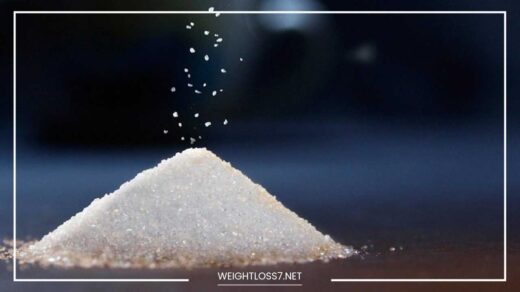Vitamin B5: Functions, Sources, and Health Benefits

Vitamin B5
Vitamin B5: The Essential Nutrient for Overall Health & Vitality.
Vitamin B5, scientifically known as Pantothenic Acid, is a water-soluble vitamin that belongs to the B-complex group.
It plays a critical role in various bodily functions and is essential for maintaining overall health and well-being.
In this comprehensive exploration of Vitamin B5, we will delve deeper into its significance, dietary sources, functions in the body, potential health benefits, recommended intake, and any associated risks or deficiencies.
The Significance of Vitamin B5
Vitamin B5, or Pantothenic Acid, is named after the Greek word “pantos,” meaning “everywhere,” highlighting its ubiquitous presence in various foods.
It earned this name because it is indeed found in virtually every type of food, both of animal and plant origin.
This wide distribution in nature makes it highly unlikely for individuals to develop a Vitamin B5 deficiency through dietary means alone.
Consequently, unlike some other vitamins, there is no established Recommended Dietary Allowance (RDA) for Vitamin B5.
Despite not having an established RDA, Vitamin B5 remains an indispensable nutrient for the body. It plays a pivotal role in several fundamental processes that are crucial for maintaining optimal health and functionality.
Functions of Vitamin B5 in the Body
1. Energy Production
One of the primary functions of Vitamin B5 is its involvement in energy metabolism. It is an essential component of coenzyme A (CoA), a molecule that is central to the conversion of food into energy.
This metabolic process takes place in the mitochondria, often referred to as the “powerhouses” of the cell.
CoA acts as a carrier molecule, shuttling molecules from various metabolic pathways to the citric acid cycle, also known as the Krebs cycle.
In this cycle, nutrients like carbohydrates, fats, and proteins are oxidized to generate adenosine triphosphate (ATP), the body’s primary energy currency.
Without sufficient Vitamin B5, the conversion of these nutrients into ATP would be compromised, leading to reduced energy production.
2. Fatty Acid Synthesis
Vitamin B5 is also essential for the synthesis of fatty acids. CoA, which contains Vitamin B5, plays a vital role in the production of long-chain fatty acids.
These fatty acids are necessary for building cell membranes, supporting brain function, and aiding in the absorption of fat-soluble vitamins (A, D, E, and K). Adequate Vitamin B5 levels are therefore vital for overall lipid metabolism.
3. Acetylcholine Synthesis
Acetylcholine is a neurotransmitter that plays a critical role in the transmission of nerve impulses in the nervous system.
Vitamin B5 is involved in the synthesis of acetylcholine, making it important for proper nerve function and muscle contraction.
This neurotransmitter is essential for various bodily functions, including muscle movement, memory, and cognitive processes.
4. Hormone Synthesis
During periods of stress, the body produces increased amounts of certain hormones, including adrenaline.
Vitamin B5 is required for the synthesis of these stress hormones. Consequently, maintaining adequate levels of Vitamin B5 may help the body respond effectively to stress.
Dietary Sources of Vitamin B5
Vitamin B5 can be obtained from a wide range of foods, making it readily available to most individuals through their regular diet.
While some sources are richer in Vitamin B5 than others, a balanced diet typically provides sufficient amounts of this essential nutrient. Here are some common dietary sources of Vitamin B5:
1. Organ Meats
Organ meats such as liver and kidney are among the richest sources of Vitamin B5. A small serving of these meats can provide a significant portion of your daily Vitamin B5 requirements.
2. Salmon
Salmon is an excellent source of Vitamin B5, in addition to being rich in heart-healthy omega-3 fatty acids. Including salmon in your diet can contribute to your overall Vitamin B5 intake.
3. Eggs
Eggs, particularly the yolks, contain Vitamin B5. They are also a versatile food that can be prepared in various ways, making it easy to incorporate them into your diet.
4. Legumes
Beans, lentils, and peas are plant-based sources of Vitamin B5. These legumes are not only nutritious but also provide other essential nutrients like fiber and protein.
5. Dairy Products
Milk and dairy products such as yogurt and cheese contain Vitamin B5. These foods are also excellent sources of calcium and other essential vitamins and minerals.
6. Whole Grains
Whole grains like brown rice, oats, and whole wheat products contain some Vitamin B5. However, it’s worth noting that the refining process involved in making white flour from grains can result in the loss of Vitamin B5, so whole grains are a better source.
7. Vegetables and Fruits
While fruits and vegetables contain smaller amounts of Vitamin B5 compared to other sources, they still contribute to your overall intake. Broccoli, avocados, and sweet potatoes are among the vegetables that contain some Vitamin B5.
Interaction with Other B Vitamins
Vitamin B5 is most effective when it is combined with other B vitamins, as they often work synergistically to support various bodily functions.
These interactions are particularly significant in the context of energy metabolism and overall health. Here’s a brief overview of how Vitamin B5 interacts with other B vitamins:
1. Thiamin (B1)
Vitamin B5 collaborates with Vitamin B1 in the conversion of carbohydrates into energy. Both vitamins are essential for efficient energy production.
2. Riboflavin (B2)
Vitamin B2 is involved in the recycling of FAD (flavin adenine dinucleotide), a coenzyme used in energy metabolism. Vitamin B5 contributes to the overall efficiency of this process.
3. Niacin (B3)
Niacin is another B vitamin that plays a role in energy metabolism. Vitamin B5 works alongside B3 to ensure the smooth functioning of metabolic pathways.
4. Pyridoxine (B6)
Vitamin B6 is essential for amino acid metabolism and the synthesis of neurotransmitters. Vitamin B5 complements B6 by supporting the synthesis of fatty acids and CoA.
5. Biotin (B7)
Biotin is known for its role in fatty acid synthesis and energy metabolism. Vitamin B5 contributes to these processes, making it an integral part of overall metabolic health.
The synergy between these B vitamins underscores the importance of maintaining a balanced intake of all B-complex vitamins to support optimal health.
Potential Health Benefits of Vitamin B5
While Vitamin B5 is primarily known for its roles in energy metabolism and cellular function, it may offer additional health benefits:
1. Skin Health
Vitamin B5 is sometimes used in skincare products for its potential to promote skin health. It is believed to help maintain skin moisture, reduce inflammation, and support the healing of minor wounds and irritations.
2. Hair Health
Vitamin B5 is also found in hair care products. It is thought to enhance hair strength and shine. However, the evidence for its effectiveness in this regard is limited.
3. Stress Management
As mentioned earlier, Vitamin B5 plays a role in the synthesis of stress hormones, such as adrenaline.
Some individuals take Vitamin B5 supplements as part of stress management strategies, although more research is needed to establish its efficacy for this purpose.
4. Cardiovascular Health
The involvement of Vitamin B5 in lipid metabolism suggests a potential link to cardiovascular health.
Maintaining healthy lipid levels in the body is essential for heart health, and Vitamin B5’s role in this process may contribute to overall cardiovascular well-being.
5. Immune Function
Vitamin B5 is required for the synthesis of antibodies, which are essential components of the immune system. Ensuring an adequate intake of Vitamin B5 may support immune function.
Recommended Intake of Vitamin B5
While there is no established RDA for Vitamin B5, various health authorities provide guidelines for adequate intake.
The Recommended Dietary Allowance (RDA) for adults in the United States is often cited as 5 milligrams (mg) per day. However, these values can vary depending on factors such as age, gender, and life stage.
It’s important to note that the body’s Vitamin B5 requirements are interconnected with overall dietary patterns and the presence of other nutrients.
A balanced diet that includes a variety of foods from different food groups is the best approach to ensuring sufficient Vitamin B5 intake.
Deficiency and Toxicity of Vitamin B5
Vitamin B5 deficiency is extremely rare due to its widespread presence in various foods. As a result, there are few documented cases of Vitamin B5 deficiency in individuals with normal dietary habits.
However, in extreme cases, deficiency symptoms may include fatigue, irritability, numbness or tingling in the extremities, and gastrointestinal disturbances.
These symptoms are largely reversible with Vitamin B5 supplementation or dietary adjustments.
On the other hand, there are no known adverse effects associated with excessive Vitamin B5 consumption from natural food sources.
The body efficiently regulates Vitamin B5 levels, and excess amounts are excreted in the urine. Thus, there is generally no risk of toxicity from dietary intake of Vitamin B5.
Supplements and Vitamin B5
While obtaining Vitamin B5 from natural food sources is the preferred method, supplements are also available for individuals who have specific dietary restrictions or medical conditions that may impede their ability to meet their Vitamin B5 needs through food alone.
Vitamin B5 supplements, often labeled as Pantothenic Acid supplements, can be found in various forms, including capsules, tablets, and liquids.
However, it’s important to exercise caution when considering supplements. Excessive intake of isolated nutrients, including Vitamin B5, can disrupt the balance of other vitamins and minerals in the body.
Therefore, it is advisable to consult with a healthcare professional before starting any supplementation regimen to ensure that it is appropriate for your individual health needs.
Final Remarks
In conclusion, Vitamin B5, or Pantothenic Acid, is an essential nutrient that plays a central role in energy metabolism, fatty acid synthesis, neurotransmitter production, and various other vital processes in the body.
While it is widely available in a variety of foods, maintaining a balanced diet that includes sources of Vitamin B5 is essential for overall health and well-being.
The interaction between Vitamin B5 and other B-complex vitamins underscores the importance of consuming a diverse range of nutrients to support optimal health.
Additionally, Vitamin B5 may offer potential benefits for skin health, hair health, stress management, cardiovascular health, and immune function, although further research is needed to fully understand its impact in these areas.
Deficiency of Vitamin B5 is rare, but it can result in symptoms such as fatigue and gastrointestinal disturbances. However, it is easily reversible with dietary adjustments or supplementation.
On the other hand, there are no known risks of toxicity associated with Vitamin B5 obtained from natural food sources.
Incorporating a variety of Vitamin B5-rich foods into your diet, such as organ meats, salmon, eggs, legumes, and whole grains, is the most effective way to ensure you receive an adequate supply of this essential nutrient.
If you have specific dietary concerns or medical conditions that may affect your Vitamin B5 intake, consult with a healthcare professional for personalized guidance on supplementation.
Overall, maintaining a balanced and nutritious diet is key to reaping the numerous benefits that Vitamin B5 has to offer for your health and vitality.

















